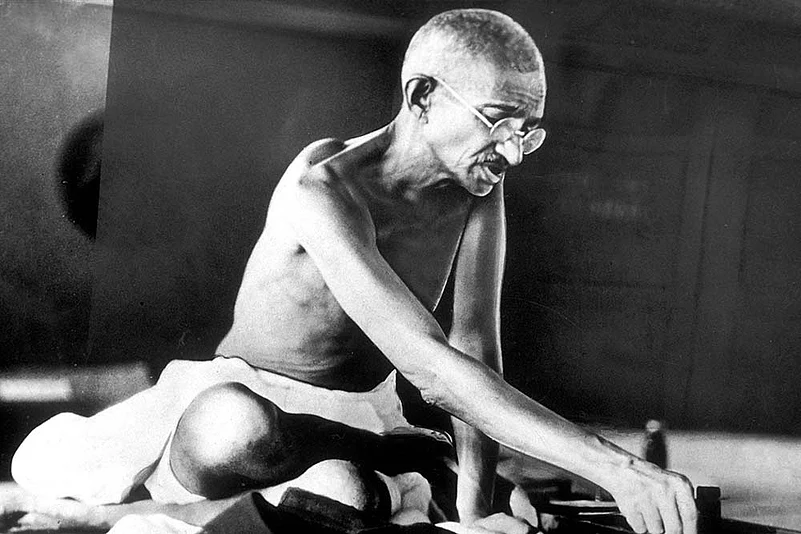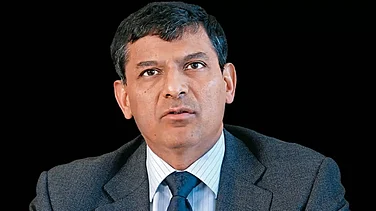India witnessed the urgency of self-sufficiency in the early 20th century. Mahatma Gandhi launched the Khadi Movement in 1920, which later turned into a comprehensive swadeshi campaign. Today, India perhaps needs the same swadeshi spirit to face one of its toughest challenges going forward. India is a beacon of stable democratic governance. Peaceful and sustainable rise of India at the global stage is imminent. Yet, India today also faces one of its toughest challenges. If you thought every crisis brings with it an opp-ortunity, the world has presented India with one, and the impulses shown by the government indicate that we have reasons to be optimistic in these extremely challenging times. The COVID-19 pandemic is once-in-a-lifetime challenge. It impacted lives, livelihoods, economies and businesses, India being no exception. Countries with far greater resources and better economic health were imp-acted far more severely.
Bharat Inc.
Aatma Nirbhar is Swadeshi Plus…and the Covid crisis is an opportunity, writes Naveen Jindal. But challenges remain: of 1,000 companies planning to exit China, only 300 were thinking of India.

I would say that the government, supported by the states, res-ponded well. The clarion call for an Aatma Nirbhar Bharat is a much-needed, welcome initiative that will help India take a lead in manufacturing, and make up for the missed opportunities of the past. Aatma Nirbhar Bharat is a swadeshi-plus philosophy. Today, the thrust is on ‘Make in India; Make for the World’. To be fair, the idea of self-reliance is not exactly a new one. Successive prime ministers since Independence have talked of India being a self-reliant nation. I have some first-hand experiences of this. The founder of O.P. Jindal Group and my father, O.P. Jindal, talked of and worked tow-ards a self-reliant India half-a-century ago. It’s a matter of pride for us that we, at JSPL, are wedded to the idea of an Aatma Nirbhar Bharat. Given the Covid-induced contraction of the world economy, China’s rise, its hostile posturing tow-ards many countries, including India, and overdependence on China in the global supply chain have led global enterprises to look for new manufacturing bases outside China.
ALSO READ: Swadeshi Movement Part 2
It is in this context that the call of PM Narendra Modi is of importance and strategic significance. India is on the cusp of a new beginning. When the government was voted to power at the Centre, the people, and businesses alike, had big expectations. The Modi government launched the ‘Make in India’ initiative in September 2014, with the aim to take the share of manufacturing in GDP to 25 per cent. While, in the last few years, some sectors like smartphone production gave a boost to manufacturing, there’s a view that more could have happened, especially when seen against economies like Vietnam, Thailand, or even Bangladesh.
While we aspire to be like China in the manufacturing sector, it’s instructive to note that the share of China’s manufacturing and its GDP is almost double of India’s. This has been the case for the last six years. China’s manufacturing sector contributes 12 per cent of the world’s GDP growth. Clearly, we have ground to cover and cover fast. After the Modi government came to power, India’s global ranking in ease of doing business improved from 142 in 2014 to 63 in 2019. This year, India hopes to break into the Top 50 bracket.
ALSO READ: Inequality Paradox
All this is welcome. Having said this, there remain impediments, obstacles, and redtapism that need to be addressed if we want India to emerge truly as a business-friendly manufacturing hub, having a culture which respects its wealth creators. The extent of reforms needed was stressed by a recent Teamlease study which, among other things, said, there are 1,536 Acts, 6,618 regulatory filings, and some 69,000 compliances that a business faces across Centre and states.
Labour-related compliances form a major chunk. We need to work on this. Faced with the new challenges and business environment, many states recently relaxed labour norms. While we are committed to labour rights and welfare, the need for reforms and flexibility is equally important. Somehow, the recent reforms couldn’t go through, but we must debate the issue.
ALSO READ: Land Of Billion Entrypreneurs
While announcing his Aatma Nirbhar Bharat vision, Modi said as much when he talked about major changes in four ‘Ls’—land, labour, liquidity, and laws. Some changes, it app-ears, are already in the air. The minister for commerce and industry recently announced that the government was working towards a single-window system for clearances and approvals, in addition to setting up land bank. Six states have consented for the idea of land bank. Twenty high-priority sectors have been identified which include textiles, steel, aluminum, copper, agro-chemicals, and ready-to-eat food. It’s also been reported a land pool of 460,000 hectares was identified for foreign companies.
Yet, the challenges are huge. Consider, for instance, the April 2020 Nikkei report that said that out of 1,000 companies planning to exit China, and invest in Asian countries, only 300 were thinking of India. What can we do to attract not just the global corporations looking to exit China, but from other countries too? For one, I would say that we need to look at further relaxing the FDI regime. We must actively encourage our diplomatic missions abroad to solicit more investments, and in the immediate context, work on the companies looking to exit China.
ALSO READ: Think Indian Dot Com
Like some other south-east Asian countries have done, offering tax holidays to new investors may be good idea. Slashing corporate tax rate to 15 per cent for new companies has been a welcome move as well. We must support the investments that are already there on the ground. They can serve as the best examples of a thriving and successful business-friendly environment. If the issues faced by industries already invested are not resolved and addressed, they will only serve as a deterrent to potential business investors. We need to support and encourage business-friendly initiatives across India as they benefit all stakeholders.
We must encourage states to set up industrial townships and parks. Industries were, and will continue to be, the temples of modern India. This government has repeatedly said that wealth creators need to be respected. Let this thought percolate down to every agency and institution. In these Covid times, it’s a matter of satisfaction that agriculture did well. It’s been the mainstay of a large section of the population. But let’s also focus on manufacturing. An industrial revolution bypassed India, and services saw an expansion.
ALSO READ: ‘I’ Of The Storm
The government has shown both intent and commitment. In historical terms, India was often referred to as a golden bird. It was due to the fact that India had abundant natural resources and it was a global trade hub. I do not see any reason why our golden history cannot be repeated.
(Views are personal)
Naveen Jindal Chairman, Jindal Steel & Power

























